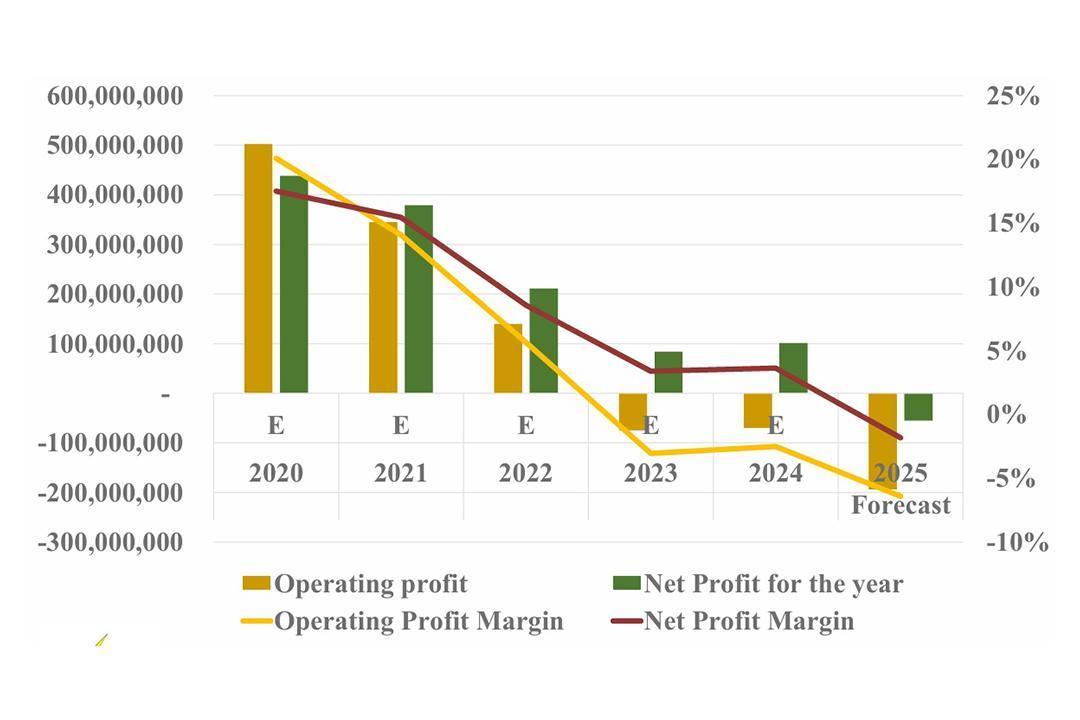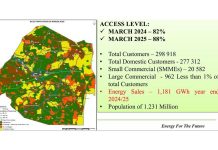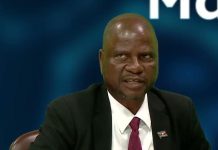Africa-Press – Eswatini. Despite ambitious infrastructure and renewable projects, EEC’s financial outlook is under pressure, Managing Director Ernest Mkhonta told media stakeholders.
The main culprit: rising electricity import costs outpacing tariff adjustments.
Mkhonta revealed that in the financial year ending March 2024, EEC faced a projected E200 million loss in operating profit, eroding reserves built in previous years. This decline stems from the disparity between tariff increases in Eswatini and those imposed by import partners, such as South Africa’s Eskom and Mozambique’s EDM.
For example, in 2025, Eskom’s tariffs rose by 13.2% and EDM’s by a staggering 32%, while EEC’s approved increase was only 9.1%. “When your cost of sales increases by double digits and your revenue grows at single digits, sustainability becomes a challenge,” Mkhonta said.
EEC currently spends E200 million monthly on electricity imports, which account for 70–80% of national consumption. With maximum demand at around 250 MW and domestic generation covering only a fraction of that, imports are unavoidable.
The financial strain is compounded by the fact that 97% of EEC’s customer base are domestic consumers, who contribute only 35% of revenue. The bulk of income — over 50% — comes from a small number of industrial and commercial clients, making revenue streams vulnerable.
Mkhonta warned that without aligning tariffs more closely to import costs, the company risks negative cash flow and an overreliance on borrowing to sustain operations. This, he noted, could threaten the stability of the power supply and delay critical infrastructure projects.
Still, EEC is exploring ways to diversify income, such as commercialising its fibre network and leasing properties. But Mkhonta stressed that these measures are supplementary: “The heart of our revenue is still electricity sales. For us to continue powering the nation, the pricing structure must reflect the cost of delivering the service.”
The financial health of EEC is not just a corporate issue, it has national implications. Energy security, industrial growth, and rural electrification all hinge on a stable and financially viable utility. As Mkhonta put it, “A strong EEC means a strong Eswatini.”
For More News And Analysis About Eswatini Follow Africa-Press







